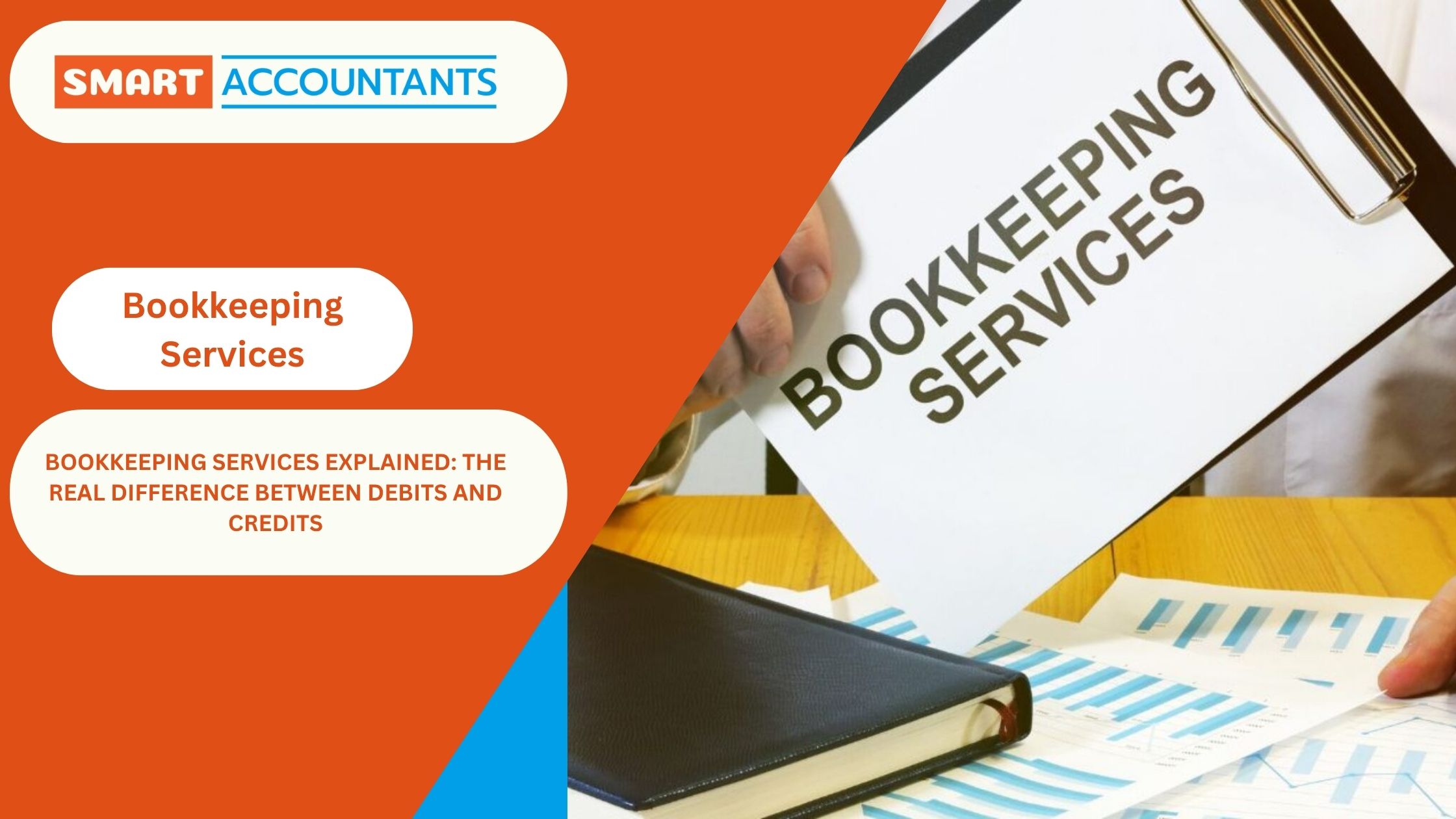What Are Bookkeeping Services and Why Do They Matter?
Bookkeeping services are the foundation of every business’s financial health. Whether you’re a solo entrepreneur or running a growing company, knowing where your money is going is non-negotiable. That’s where bookkeeping comes in.
Simply put, bookkeeping is the ongoing process of tracking your financial transactions—everything your business spends, earns, owes, and owns. It includes recording expenses, revenue, invoices, payroll, and more. When done right, bookkeeping lets you understand cash flow, prepare for tax season, and make smarter decisions.
Debits vs. Credits: The Backbone of Bookkeeping
In double-entry bookkeeping, every transaction affects two accounts. One side is a debit, the other a credit. But what does that actually mean?
What Is a Debit?
A debit represents value coming into your business. Depending on the account type, a debit may increase or decrease the balance. For example:
- Debiting an asset account increases it (you gain value).
- Debiting a liability or equity account decreases it (you reduce what you owe).
Example: You buy a $1,000 laptop with cash. You debit your Equipment account (an asset), because your business now owns something of value.
What Is a Credit?
A credit is the opposite. It reflects value leaving your business or obligations increasing. In other words:
- Crediting an asset account reduces it (you’ve spent cash).
- Crediting a liability or equity account increases it (you owe or own more).
Example: You pay $1,000 cash for that laptop. You credit your Cash account (an asset), because you have $1,000 less in the bank.
Why Understanding Debits and Credits Matters
If you don’t know how these entries work, even the best softwares or accounting service can only do so much. Here’s why it matters:
- It helps you spot errors in your books.
- It makes tax time less stressful.
- It ensures your financial statements are accurate.
- It lets you understand what your bookkeeper or Accounting company is actually doing.
And if you’re looking for bookkeeping services for small business owners, this understanding can save you from overpaying or missing key insights.
How Bookkeeping Services Use Debits and Credits
Real-World Examples You Should Know
1. You Receive a $5,000 Loan
- Debit: Cash +$5,000
- Credit: Loan Payable +$5,000
You’re increasing your assets (cash) and increasing your liabilities (loan).
2. You Repay $1,000 of That Loan
- Debit: Loan Payable -$1,000
- Credit: Cash -$1,000
You reduce what you owe and reduce your available cash.
3. You Sell a Product for $500 in Cash
- Debit: Cash +$500
- Credit: Revenue +$500
Revenue increases equity, so a credit entry makes sense.
4. You Buy Inventory for $2,000 on Credit
- Debit: Inventory +$2,000
- Credit: Accounts Payable +$2,000
You gain assets but owe a supplier.
5. You Pay an Employee $3,000
- Debit: Payroll Expense +$3,000
- Credit: Cash -$3,000
Expenses always go up on the debit side.
Bookkeeping Services for Small Business: What to Expect
Core Offerings
Most business bookkeeping services include:
- Categorizing transactions
- Bank & credit card reconciliations
- Monthly financial statements
- Payroll summaries
- Tax-ready reports
Some go further with budget forecasting, accounts payable/receivable, and cash flow management.
Customization for Startups
Startups have unique needs. If you’re a founder, look for an accounting and bookkeeping service for startups that understands:
- Burn rate and runway
- Investor reporting
- Convertible notes
- R&D tax credits
These aren’t standard services, so don’t assume every bookkeeper is equipped.
Accounting Bookkeeping Services vs. DIY
When you’re new, DIY bookkeeping feels manageable. But here’s what business owners quickly find:
- You waste time on tasks you hate.
- You miss deductible expenses.
- Your reports don’t match your reality.
Outsourcing to professional accounting bookkeeping services means:
- Better accuracy
- More free time
- Peace of mind
What Tools Do Modern Bookkeepers Use?
Common Software:
- QuickBooks Online: Most used in the U.S.
- Xero: Loved by startups and SaaS companies
- Wave: Free for microbusinesses
Automations That Save Time
- Bank feeds
- Receipt capture
- Rule-based expense categorization
- Real-time dashboard reports
But software isn’t a replacement for insight. Human review matters.
How to Choose the Right Bookkeeping Service
Key Questions to Ask
- Do they specialize in your industry?
- How do they handle communication?
- What’s included in their monthly fee?
- Can they scale with your growth?
- Do they follow GAAP (Generally Accepted Accounting Principles)?
You can also Learn about us to understand our process, team, and experience.
Pricing: What Do Bookkeeping Services Cost?
Factors That Influence Price
- Number of transactions
- Payroll volume
- Need for custom reporting
- Sales tax complexity
- Industry specifics (e.g., ecommerce, law, medical)
Ballpark Estimates
- Freelancers: $30–75/hour
- Small firms: $300–900/month
- Full-service: $1,000–2,000/month and up
If you’re unsure what you need, Contact us for a free consultation.
Common Myths About Debits and Credits
Myth 1: Debits always mean “increase”
Wrong. They increase some accounts (like assets), but decrease others (like liabilities).
Myth 2: Bookkeeping is just data entry
Modern bookkeeping is part of your strategy. It drives real decisions and can influence growth.
Myth 3: One system fits all
Your industry, size, and goals change what bookkeeping looks like.
FAQS
What does a bookkeeper actually do?
A bookkeeper records and categorizes financial transactions, reconciles accounts, and provides reports that help business owners understand their finances.
Do I need a bookkeeper or an accountant?
You likely need both. Bookkeepers manage daily records; accountants handle tax filings, audits, and financial strategy.
Can bookkeeping services help at tax time?
Yes. They provide clean books and documentation your accountant can use to prepare returns or file quarterly taxes.
Are bookkeeping services worth the cost?
If your time is worth more than the cost of service (usually the case), then yes. You gain accuracy and avoid financial missteps.
Can I outsource bookkeeping remotely?
Absolutely. Most modern bookkeepers use cloud tools to work with clients across the country.






